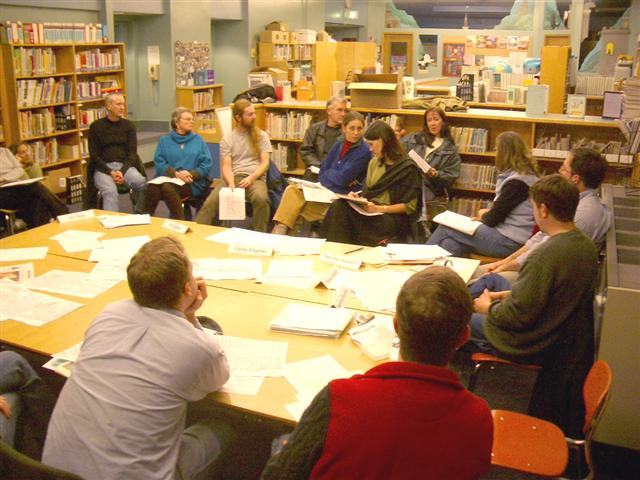
At first glance, it seems so obvious how a Board meeting should be conducted. However, as a Board member, unusual circumstances can throw an entire board into a loop. Take the time to put some measures into place so there are no surprises. Realize that there are different types of Board meetings and varying communication methods that can be used to run an effective session.
Regular Meeting
This type of meeting is conducted on a regularly scheduled time, date, and place. A regular meeting of the Board of Directors is conducted for the purpose of accomplishing association business. In addition to the apparent policies and guidelines for conducting such a meeting, consider establishing agreement on the following:
- A Board meeting exists whenever a majority of its members gather at the same time to discuss or deliberate upon an association matter, after proper notice to the membership.
- In accordance with many state open meetings laws, the Board shall hold its meetings in a public location (not a private home).
- Closed sessions shall be conducted only to discuss confidential matters specified by law.
- To encourage member involvement in the open meeting, the Board should provide an opportunity for questions and comments, and specify time limits for the open member forum.
- Meetings shall be held in a facility that is accessible to all persons, including disabled persons.
Special Meeting
This type of meeting is held at times to discuss a specific matter, outside the scope of a regular meeting. For instance, the Board may be conducting bid proposal interviews with vendors and may want to devote a meeting to just that activity. What constitutes a special meeting?
- Generally speaking, a Special meeting of the Board of Directors may be called by the presiding officer, a majority of the Board members, or other requirement established by the bylaws of the association.
- Written notice of special meeting shall be delivered to all Board members, in advance of the meeting, in compliance with the requirements of state law or the bylaws of the association.
- The special meeting notice shall specify the time and place of the meeting and the business to be transacted or discussed.
Emergency Meeting
What constitutes an emergency can be a matter of debate among Board members. It is important to establish criteria, so you are not caught off guard when an emergency exists. The Board may hold an emergency meeting in compliance with state law or the bylaws of the association without notice in the following cases:
- An activity which severely impairs public health, safety, or both, as determined by a majority of the members of the Board
- A disaster which severely impairs public health, safety, or both, as determined by a majority of the members of the Board
- The Board president or designee shall give notice of the emergency meeting at least 24 hours before the meeting, whenever possible.

Teleconference Meeting
Since many Board members may travel or cannot make it to the Board meeting location, why not consider how to use teleconferencing to conduct a board meeting?
- A teleconference is a meeting of the Board in which Board members are in different locations, connected by electronic means, through either audio, video or both.
- The Board may typically use teleconferences for all purposes in connection with any meeting of the Board of Directors.
- All votes taken during a teleconference meeting shall be by roll call.
- During the teleconference, at least a quorum of the members of the Board shall participate from one physical location.
- All teleconferenced meetings shall be conducted in a same manner that protects the statutory rights of the members, including the right of the membership to address the Board.
- All Board policies and association bylaws shall apply to board meetings that are teleconferenced.
Other Gatherings
There will be times that more than a majority of the Board members could be located in one place. If this occurs, do you have guidelines in place that can reduce any perception of impropriety? Attendance by a majority of the Board members at any of the following events is not subject to open meeting laws, provided that a majority of the Board members do not discuss specific association business among themselves:
- A public gathering that involves a discussion of issues of general interest to the public.
- An open, publicized meeting organized by a person or organization other than the association to address a topic of local community concern.
- An open and noticed meeting of a legislative body.
- A purely social or ceremonial occasion.
- An open and noticed meeting of a standing committee of the association.
- Individual contacts or conversations between one Board member and any other person.
Don't be caught without any advance guidelines when unusual circumstances materialize. Prepare your Board of Directors for the abnormal events that can happen in the day-to-day management of the association.
 Print
Print Email
Email







